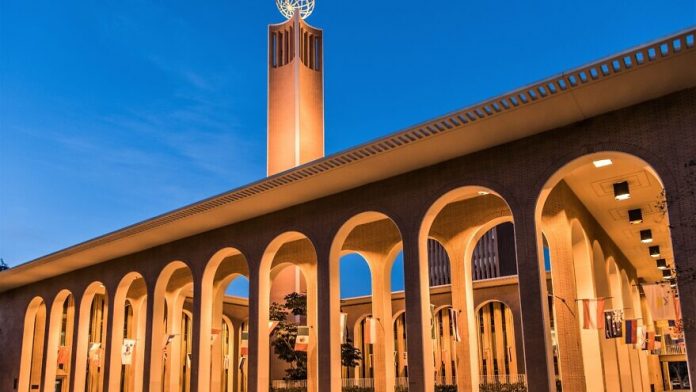

“While the list of protected groups in USC’s policy is long, Jewish students experiencing anti-Zionist harassment do not naturally fit into a group that guarantees them protection,” says a letter to the university president Carol Folt.
(February 18, 2022 / JNS) After the University of Southern California (USC) recently announced publicly that it will be forming an Advisory Committee on Jewish Life after a number of anti-Semitic incidents on campus, a group of 1,446 individuals signed a petition urging the university to revise its policy on who it considers protected individuals.
The group, led by the AMCHA Initiative—a group that monitors anti-Semitism at colleges and universities throughout the United States—sent a letter to USC president Carol Folt, the board of trustees and members of the newly formed committee advising them about a double standard the university has when addressing hateful rhetoric against Jewish and non-Jewish Zionist students and staff as opposed to rhetoric towards other groups.
“While the list of protected groups in USC’s policy is quite long, and many students will easily find their niche, Jewish students experiencing anti-Zionist motivated harassment do not naturally fit into a group that guarantees them protection. And non-Jewish pro-Israel students who fall victim to anti-Zionist harassment are never covered by the school’s policy,” the letter states. “This distinction highlights a profound inequality not just for Jewish and non-Jewish pro-Israel students, but for many students on your campus, under USC’s policy the exact same harmful behavior will be either addressed or ignored by administrators, based solely on the identity of the student.”
The university, which affirms a strong commitment to freedom of expression on campus, has exceptions carved out for certain groups in its policies, according to the petition, and students who are not members of those groups find their right to be protected against verbal harassment outweighed by their harasser’s right to free speech.
USC was recently compelled to confront the anti-Jewish and anti-Zionist climate on its campus after multiple letters were written to its administration in recent months complaining about a hostile environment for Jewish, Israeli and Zionist students and staff. One such instance included a Muslim graduate student leader saying on social media that she wanted to kill all Zionists.





